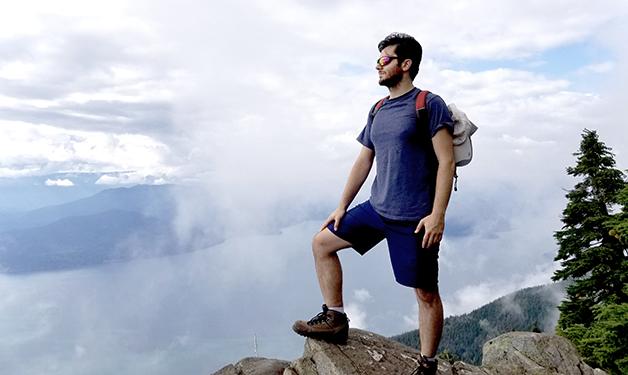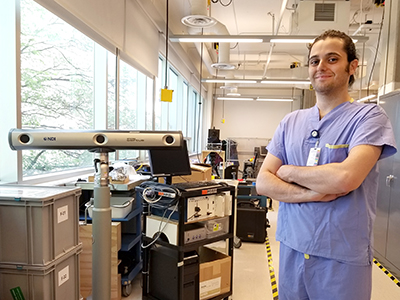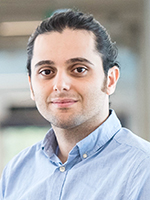
Meet Hooman – bringing engineering into the operating room.
Q: What is your area of interest in health research?
A: I am most interested in the use of engineering methods and tools to enhance patients’ quality of life. I believe that humans have always created new technologies to improve lives and the closest place to observe this phenomenon is in health care. More specifically, the use of artificial intelligence as a decision support system inside the operating rooms is my biggest passion. When a state-of-the-art system is successfully implemented in an operating room, it can benefit both the provider—by assisting surgeons to better perform the surgical tasks, and the patients—by speeding up the recovery process.
Q: What is your role in health research?
A: My current research is focused on the design and implementation of an intraoperative implant assessment system for use in spinal and pelvic surgeries. The surgical challenge is to ensure that the implants are placed in the exact right spot; otherwise they can penetrate the bone and contact the spinal cord, which can cause postoperative complications like nerve damage.

Q: What is the best part of your research job?
A: The interactions I get to have with people from a variety of backgrounds, ranging from medicine and health care to engineering and computer science, is incredibly rewarding. Through these collaborations and friendships, I am continually learning new skills and building valuable networks.
Q: You began your university career studying geomatics. How did you move from an interest in studying the Earth to studying health care technology?
A: Geomatics engineering is the science of navigation and the processing of spatially referenced information. It looks at data formats that are related to the earth and the environment, but I found that similar concepts and challenges exist in the surgical domain, where knowing the exact position of different objects, like human organs and implants and surgical tools is essential. That’s how I became interested in applying my knowledge of navigation and spatial information processing to the surgical field, where the benefits to people are even more tangible.
Q: What has been the biggest accomplishment in your career so far?
A: I recently received the Friedman Award for Scholars in Health. This award will support my upcoming fellowship at the Ludwig Maximilian University of Munich and the Technical University of Munich. I will be working on an augmented reality system for tangible data representation to help surgeons during orthopaedic surgeries.
Q: What do you like to do for fun in your free time?
A: I like to be active, so I play both indoor and beach volleyball. I also play piano and the ukulele in my spare time. Additionally, I’m an aviation enthusiast, so I enjoy reading about news and advancements in civil aviation.
Q: What’s your favourite TV show?
A: I like to relax by watching The Office. It’s always good for a laugh.



